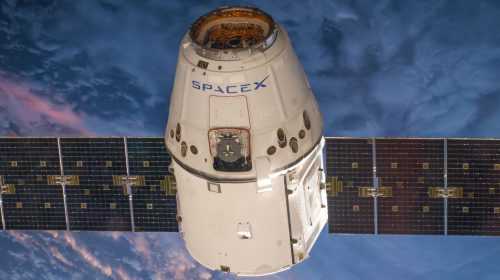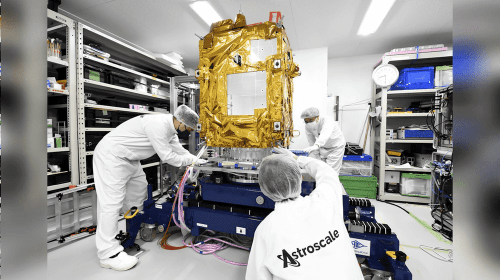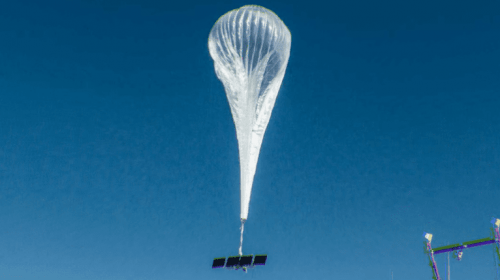- Page 1: iDirect enabled technology: Introduction
- Page 2: TCP over satellite and reliability
- Page 3: Rain fade and performance issues
- Page 4: Services
TCP/IP over Satellite
A significant difficulty encountered in supporting TCP/IP applications over satellite has to do with the inherent latency or delay of satellite systems. Because satellites are 23,000 miles above the earth, the time it takes for a signal to go from the ground to the satellite and back to the ground is just over 1/4 second. The TCP/IP protocol was designed for guaranteed transport. A server or PC sending data will begin by sending a few packets and then waiting for an acknowledgment that the data was received before sending any more. If the data is successfully received and acknowledged, the sending device will send more packets at a faster rate. It will continue to speed up until acknowledgments are lost. This tells the sending device what the speed or bandwidth capability of the transport services is, and it will send remaining data at that rate. Unfortunately, satellite latency appears to the sending TCP/IP device as a very slow or congested circuit. It expects an acknowledgment within a short time period and when it doesn’t get it, it throttles back and retries. Satellite vendors circumvented this problem by using TCP acceleration techniques sometimes called spoofing. This is based on the same techniques that were used to solve similar problems with IBM SNA/SDLC and other older protocols in the past. Many satellite solutions require an external device to provide TCP acceleration. Almost all legacy solutions accelerate TCP in only one direction. Many of the solutions are based on spoofing the TCP/IP protocol. The problem here is that there is no end-to-end management of the TCP session, so if a packet is dropped midway through transferring a large file, the file must be retransmitted from the beginning. iDirect provides bi-directional TCP acceleration, built into the satellite router and hub equipment at both the remote site and teleport hub equipment. Furthermore, the data transmission is tracked and buffered and occasional acknowledgments are sent end-to-end so that if an error does occur, only the corrupted portion need be retransmitted.
Another related issue is TCP Session Setup. This can be seen when pulling up a web page that has multiple links on it for content. Each of these links must go through a connection/acknowledgment process that must be performed sequentially and is directly affected by satellite latency. iDirect provides HTTP or Web Acceleration that works in both directions. It dramatically improves web response by eliminating the need for the acknowledgment packets to traverse the satellite link. This results in downloading pages smoothly and quickly as though on a terrestrial link.
Reliability and rain fade
Everyone who has ever used DirecTV or Dish Network video television service is aware of the fact that service can be degraded or lost during a bad storm. This interference is especially troubling for IP traffic. TCP/IP requires very low bit error rates (10-9 BER) to deliver data at full speed. With increasing error rates, packets must be retransmitted, resulting in a significant reduction in throughput. On an IP satellite service, when the Bit Error Rate degrades to 10-7 BER, IP throughput drops to about 5%. Satellite vendors have incorporated forward error correction (FEC) technology that works to correct errors in an effort to avoid retransmission. The challenge is to find a balance between the overhead of the FEC technology and the gain in performance by mitigating errors and retransmits. The most common FEC today is called Reed Solomon Viterbi (RSV). This FEC technology has been incorporated into many of the chip-sets that use DVB/MPEG to deliver data. The primary limitation of RSV is that the higher the level of desired reliability, the greater the amount of FEC overhead, at great cost to bandwidth efficiency.
There is a newer and far superior technology called Turbo Product Codes (TPC) that works using a reiterative process much like a turbo on a car engine. It essentially corrects some of the errors, and then sends the data through the process again, attempting to correct any packet corruption that might have occurred during transmission. It does this using a minimum of FEC overhead. Turbo Product Coding reduces the amount of power required for antennas to transmit signals to a satellite while maintaining high error correction performance. As a result, customers can use smaller, less expensive antennas, thereby enabling voice, data and Internet applications to be supported more cost-effectively. According to industry experts, TPC offers the best coding performance of any common FEC technology implemented to date. In communications engineering you rarely get something for nothing. Generally technology that improves information reliability comes at the cost of either time or bandwidth. TPC is as close to something for nothing as you can get today.
iDirect is the first satellite technology provider to implement this new technology in their product, and the only one (at this time) to utilize it in both directions.
Note: Some vendors have begun to implement Turbo Codes which is not the same thing as Turbo Product Codes and does not deliver the same degree of efficiency and reliability. There are actually two different implementations of Turbo Codes: Turbo Convolutional Codes, or TCC, and Turbo Product Codes or TPC. According to the experts, the most promising current implementation is Turbo Product Codes, or TPC, as it provides a significant advantage in terms of reliability and increased performance. TCCs typically have a noise floor that limits the maximum bit error rate achievable.
Along with the forward error correction, VSAT transmission power is an important factor in punching through inclement weather. On satellite transponders, it is power, not bandwidth that is the critical factor. Satellite providers have rules regarding how much power can be directed at the satellite. Most VSATs have a fixed amount of power they can use to transmit a signal. As the weather degrades there will come a point where the transmission power is insufficient to reach the transponder without significant errors occurring, which drastically reduces IP throughput to the point where it may fail.





